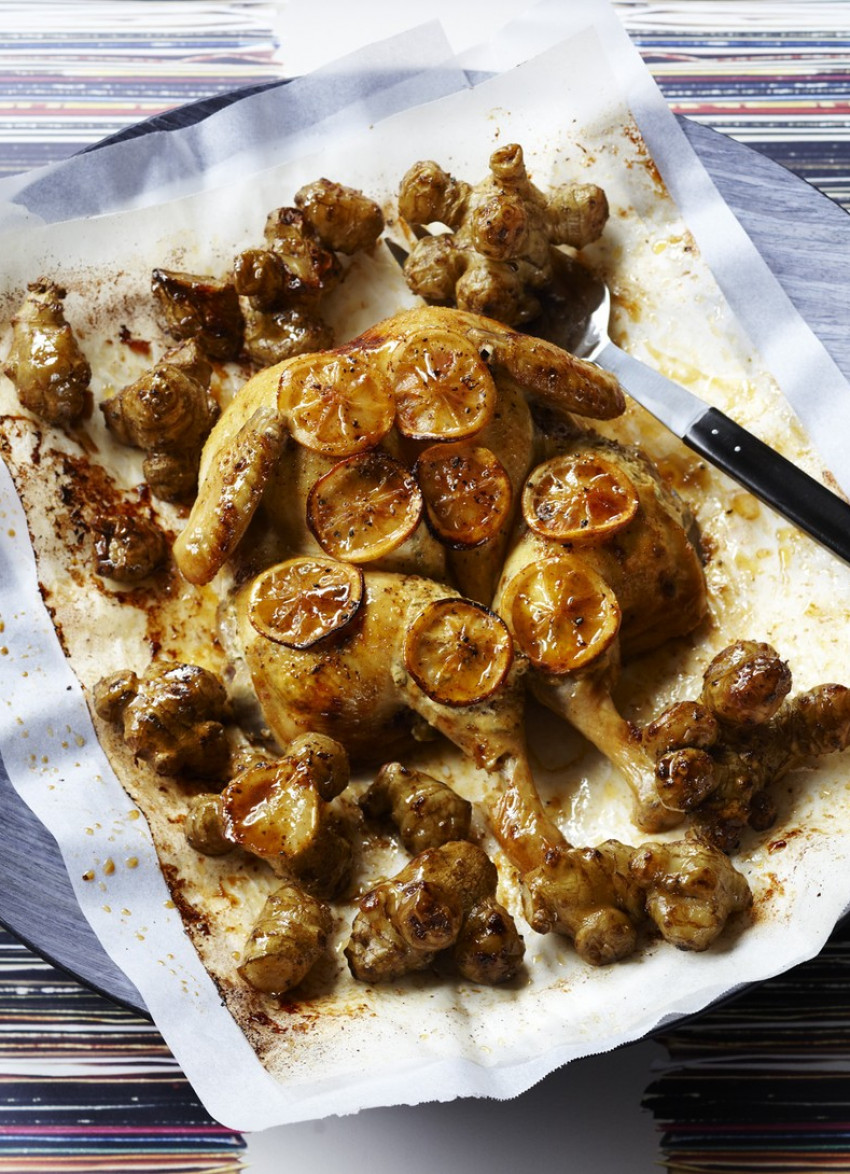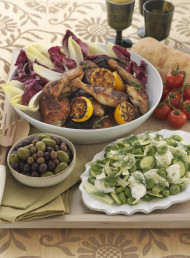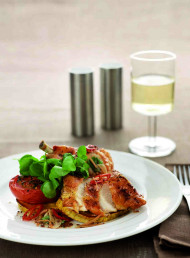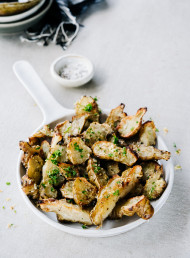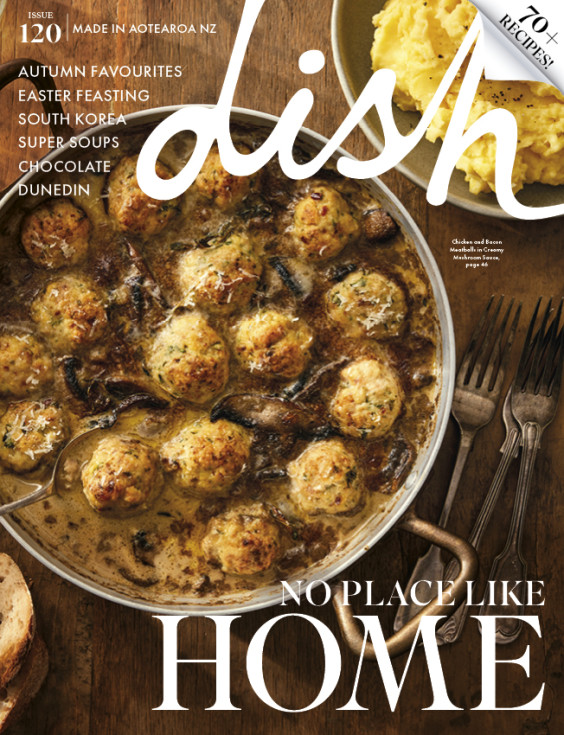Serves: 4-6
INGREDIENTS
1 free-range chicken, preferably corn-fed
100 grams cream cheese at room temperature
1 clove garlic, crushed
finely grated zest 1 lemon
2 spring onions, finely chopped
¼ cup finely chopped basil
sea salt and freshly ground pepper
To cook
olive oil
1 lemon, thinly sliced
1 teaspoon ground paprika
sea salt and freshly ground pepper
800 grams Jerusalem artichokes
METHOD
Preheat the oven to 180˚C.
Combine the cream cheese, garlic, lemon zest, spring onions and the basil in a bowl and season.
To prepare the chicken, use kitchen scissors to cut down either side of the backbone. Remove and discard the backbone, snip the wishbone and push the chicken against the bench to lie flat.
Using your fingers, gently ease the skin away from the flesh of the breast, thighs and drumsticks. Taking care not to tear the skin, spread the cream cheese mixture over the flesh and smooth the skin back over the top.
To cook: Brush both sides of the chicken with olive oil and season with salt and pepper. Lay the lemon slices over the skin, brush with olive oil and dust with paprika. Place skin side up in a roasting dish.
Scrub the artichokes well to remove any dirt. If they are very large, cut in half. Toss with a little olive oil, season and place around the chicken. Roast for 1 hour, basting the chicken occasionally with the pan juices and turning the Jerusalem artichokes. The chicken is cooked when the juices from the thigh run clear when pierced with a skewer. Remove the artichokes from the tray when tender and keep warm. Rest the chicken, loosely covered, for 10 minutes.
To serve: Carve the chicken and arrange on a platter with the artichokes. Spoon over the pan juices and serve with Sauteed Brussels Sprouts with Bacon and Almonds.
Jerusalem artichokes: this autumn/winter vegetable is neither an artichoke nor is it from Jerusalem – it’s actually native to North America. When buying Jerusalem artichokes look for firm tubers with as few bumps and lumps as possible, so that peeling is easier and there isn’t too much waste. Store somewhere cool and dark, as you would potatoes.
Keep up to date with
dish weekly recipes,
food news, and events.
latest issue:
Issue #120
As the days become shorter, and the nights cooler, the latest issue is perfectly timed to deliver delicious autumn dishes. From recipes using fresh seasonal produce such as feijoas and apples, to spectacular soothing soups and super-quick after-work meals in our Food Fast section, we’ve got you covered. With Easter on the horizon, we feature recipes that will see you through breakfast, lunch and dinner over a leisurely weekend holiday, and whip up chocolatey baking treats sure to please. We round up delicious dinners for two and showcase a hot new Korean cookbook before heading south to Dunedin to check out all that’s new in food and dining.The latest issue of dish is on sale NOW at all good bookstores and supermarkets – don’t miss it!

